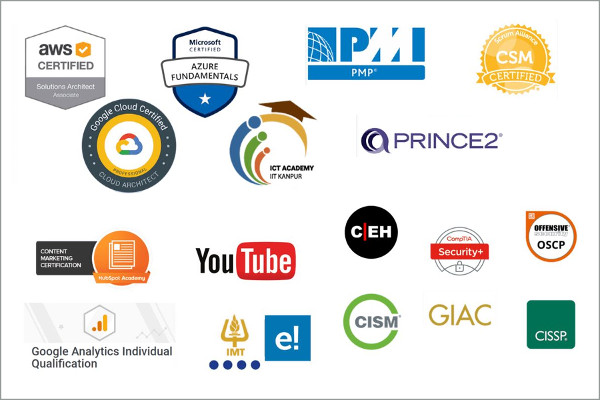The Top 15 Most Wanted Soft Skills That Employers Look for When Hiring Candidates for a Job
In today’s job market, it’s not just about having the right technical expertise. Employers want candidates who bring something more to the table - those who can connect with others, adapt to changing environments, and get things done without constant supervision. Enter soft skills. These are the kinds of qualities that make all the difference in creating a positive workplace culture and achieving long-term success. From communication to leadership, there are certain soft skills that every employer is looking for when hiring. So, if you’re wondering how to stand out in a sea of applicants, focusing on these key soft skills could be the answer.

1. Communication Skills
Communication is more than just talking or writing - it’s about connecting with people. Whether you’re collaborating with a colleague, explaining something to a client, or just keeping your team updated, how you communicate speaks volumes about you as a professional. Employers seek candidates who can articulate their ideas clearly and listen carefully to others. Being able to adjust your communication style depending on the audience is a huge plus. It's also not just about talking; non-verbal communication, like body language and tone, are just as important in making meaningful connections. And let’s not forget about the power of good old-fashioned listening - being present and understanding others can elevate your entire approach to teamwork.
2. Adaptability
In today’s fast-moving world, nothing stays the same for long. The job market is changing, new technologies emerge daily, and workplace dynamics shift faster than we can blink. Adaptability is the ability to roll with these changes and stay on top of your game. Employers are constantly on the lookout for candidates who can embrace the unexpected and thrive in uncertain environments. Those who can quickly learn new systems, switch gears when needed, and stay calm in the face of change show that they are ready for anything. If you can adapt, you’re more likely to remain valuable, no matter how much the job evolves.
3. Problem-Solving
Everyone faces problems at work, whether they’re small obstacles or big challenges. The real question is: How do you approach them? Employers value problem-solvers who don’t shy away from challenges but actively seek solutions. Strong problem-solving skills involve more than just technical know-how - it’s about thinking critically, coming up with innovative solutions, and implementing them. You don’t need to have all the answers right away, but showing that you can break down a problem, evaluate options, and take action is a key factor in standing out. If you can demonstrate that you’re resourceful and solution-oriented, you’ll be the person others turn to when something goes wrong.
4. Teamwork and Collaboration
It’s rare to find a job where you work entirely alone. Most of us spend the majority of our workday collaborating with others. Employers want to know that you’re not only a great individual contributor but also a team player. Teamwork means being willing to listen, share ideas, and collaborate to reach the best outcome. It’s about giving and receiving feedback in a positive, constructive way and knowing how to manage conflict when it arises. Whether you're working with a small team or across departments, being able to work well with others is essential for getting things done and creating a positive work environment.

5. Time Management
In today’s busy world, knowing how to manage your time is crucial. Employers don’t just want someone who can finish tasks - they want someone who can prioritize, juggle multiple responsibilities, and still meet deadlines. Time management skills show that you’re organized, efficient, and can stay on track even when you have a lot on your plate. If you’re someone who can balance various tasks without letting anything slip through the cracks, you’ll be seen as reliable and dependable. It’s not about working harder, but working smarter. And when you can demonstrate your ability to manage your time effectively, you’re more likely to stand out in a crowded field.
6. Emotional Intelligence (EQ)
Emotional intelligence, or EQ, is one of those soft skills that can’t be easily measured but is incredibly important. At its core, EQ is about understanding and managing your own emotions while also recognizing and influencing the emotions of others. High EQ helps you build strong relationships, handle stress in healthy ways, and navigate workplace dynamics with ease. Being emotionally intelligent means you’re not only aware of your own reactions but also empathetic toward others. In the workplace, this translates into smoother communication, better conflict resolution, and a more harmonious work environment overall.
7. Leadership
You don’t have to be in a formal leadership position to demonstrate leadership skills. Leadership is all about inspiring and motivating others, whether you're managing a team or just taking charge of a project. It’s about being able to make decisions, delegate effectively, and lead by example. Employers value employees who take initiative, encourage others to succeed, and set a positive tone for the rest of the team. Leadership also involves having the courage to make tough decisions, offering guidance when needed, and fostering a sense of accountability within your team. Even if you're not the boss, showing leadership potential is something that will certainly get you noticed.
8. Creativity
Creativity isn’t just for artists or designers. It’s an essential skill for solving problems, generating new ideas, and improving processes. Employers love creative employees because they bring fresh perspectives and innovative solutions to the table. Creative thinkers are not afraid to try new things and are always looking for ways to make things better. Creativity can manifest in many forms, from designing new marketing campaigns to finding ways to streamline a process. Whatever your job entails, being able to think outside the box is a huge asset. If you can offer new ideas and approaches, you’ll show your value as a forward-thinking employee.
9. Conflict Resolution
Conflict is inevitable in any workplace. The question is: How do you handle it? Employers look for candidates who can navigate disagreements without escalating the situation. Conflict resolution is a skill that involves understanding different perspectives, finding common ground, and working toward a solution that benefits everyone. It’s about maintaining professionalism and emotional control when tensions rise. Being able to de-escalate conflicts and find win-win solutions shows that you can handle the pressures of the workplace while maintaining positive relationships with your colleagues. And let’s face it, a harmonious workplace is always more productive!
10. Work Ethic and Accountability
A strong work ethic is one of the most important traits employers look for in a candidate. It’s about showing up, putting in the effort, and delivering results consistently. Employees with a strong work ethic take pride in their work and are willing to go the extra mile to get things done. But it’s not just about hard work - it’s also about accountability. Employers appreciate individuals who own their responsibilities, are dependable, and take accountability for their actions. If you’re someone who can be counted on to complete tasks with integrity and dedication, you’ll be seen as an invaluable team member.

11. Networking and Relationship Building
Building relationships is essential for career success, and it’s something employers increasingly value. Networking skills aren’t just about attending events or making small talk - they’re about fostering meaningful, mutually beneficial relationships with people inside and outside the organization. Being able to connect with others, maintain those relationships, and use them to collaborate or solve problems can set you apart. Networking doesn’t stop after you land the job; it’s an ongoing process that helps you grow, learn, and find new opportunities. Strong relationship-building skills help you succeed in both the short term and the long term.
12. Cultural Competency
Workplaces are becoming more diverse, and employers need employees who can navigate these differences with ease. Cultural competency involves understanding, respecting, and working effectively with people from diverse backgrounds. This is important not only for creating an inclusive and respectful environment but also for working with global teams and clients. Cultural competency helps avoid misunderstandings and ensures that everyone feels valued, no matter where they come from. It’s about creating a work environment where all employees feel empowered and respected for who they are.
13. Attention to Detail
In today’s fast-paced world, it can be easy to overlook the small things. But in many jobs, paying attention to detail is crucial. Employers value employees who can spot errors, catch inconsistencies, and deliver work with accuracy and precision. Whether you’re working with numbers, writing reports, or handling customer information, being detail-oriented shows that you’re thorough and dependable. It’s not just about checking boxes - it’s about taking the time to ensure your work is flawless, even if it means going the extra mile. That kind of dedication always stands out.
14. Negotiation Skills
Negotiation skills are essential in the workplace, whether you're dealing with clients, coworkers, or external vendors. Being able to negotiate effectively means you can secure favorable outcomes for all parties involved. Employers look for candidates who can approach negotiations with confidence, assertiveness, and empathy. It’s about finding solutions that work for everyone while maintaining strong relationships. Negotiation doesn’t always have to be about striking deals - it’s also about ensuring that everyone’s interests are met and that agreements are fair and reasonable.
15. Decision-Making
Good decision-making is an essential skill that employers look for in any candidate. It’s about analyzing the information at hand, weighing the pros and cons, and choosing the best course of action. Strong decision-makers know how to make tough calls and stand by their choices. Employers value those who can make decisions quickly, confidently, and with minimal guidance. It’s not just about being decisive - it’s about making informed choices that lead to the best possible outcomes for the team and the organization. If you can make the right call under pressure, you’ll be seen as someone who adds value to the organization.
Conclusion
Soft skills are the unsung heroes of a successful career. While technical expertise will get you in the door, it’s the soft skills - communication, adaptability, problem-solving, and the like - that will keep you there. By focusing on developing these skills, you not only improve your chances of getting hired but also ensure your long-term success in any career. So, the next time you’re preparing for an interview or looking to improve your performance, remember that it’s not just about what you know - it’s about how you connect with people and handle the challenges that come your way.



